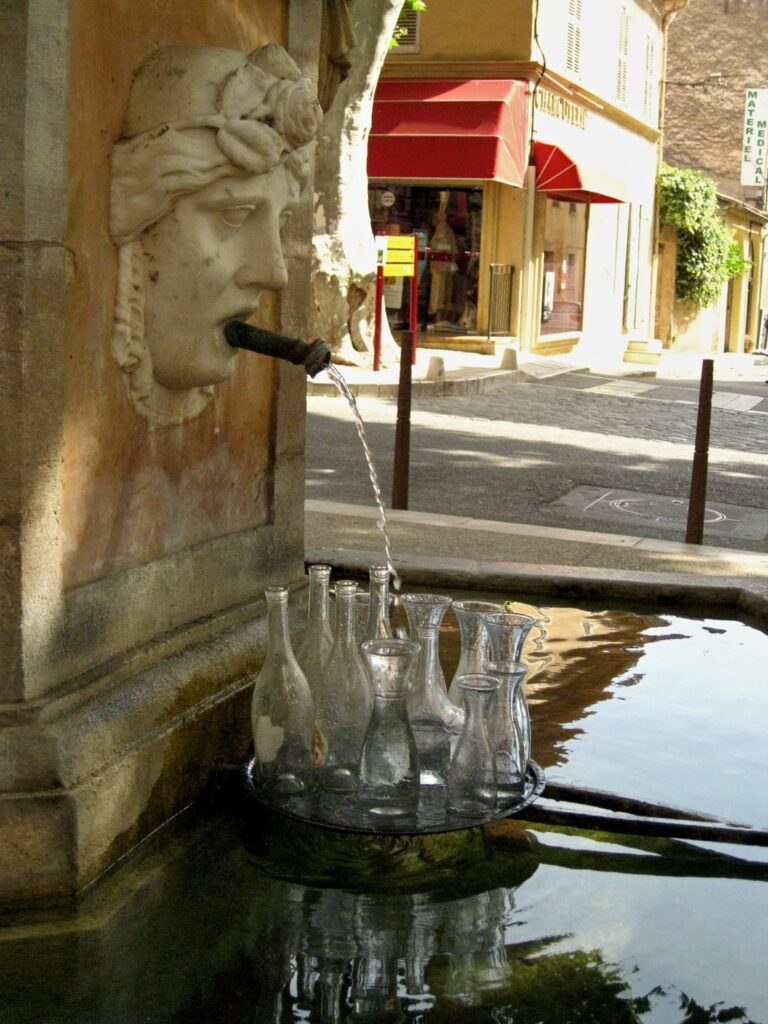L’Eau potable

Provence, 2008.
Quote of the Day
”Democracy is a system in which parties lose elections.”
- Adam Przeworski
He should have added “and accept that they have lost” when they have.
Musical alternative to the morning’s radio news
Haydn | Trumpet Concerto in Eb, 1st movement (Allegro) | Alison Balsom
Long Read of the Day
What Elon Musk Really Wants
Franklin Foer, writing in The Atlantic.
Basically, Trump is his Trojan horse.
In Elon Musk’s vision of human history, Donald Trump is the singularity. If Musk can propel Trump back to the White House, it will mark the moment that his own superintelligence merges with the most powerful apparatus on the planet, the American government—not to mention the business opportunity of the century.
Many other titans of Silicon Valley have tethered themselves to Trump. But Musk is the one poised to live out the ultimate techno-authoritarian fantasy. With his influence, he stands to capture the state, not just to enrich himself. His entanglement with Trump will be an Ayn Rand novel sprung to life, because Trump has explicitly invited Musk into the government to play the role of the master engineer, who redesigns the American state—and therefore American life—in his own image.
Musk’s pursuit of this dream clearly transcends billionaire hobbyism…
It does. Read on. Once upon a time, technology had nothing much to do with politics. No longer.
Books, etc.
The death of the book, again
John Quiggin ponders a hoary old question.
We’re in another round of concern about the “death of the book”, and, in particular, the claimed inability or unwillingness of young people to read full-length books. I’m not going to push too far on the argument that this complaint is ancient, but I can’t resist mentioning the response of my younger brother, who, when asked if he wanted a book for Christmas, answered “thanks, but I already have one”). That was around 50 years ago, and he went on to a very successful legal career.
Fifty years ago, the main competitors for books were TV and radio. Critics at the time decried the passive mode of consuming these broadcast media, compared to the active engagement required by reading. Now, in many respects, the complaint is the opposite. The various services available on the Internet are interactive, and engrossing, finely tuned to keep our attention…
Maybe this is a recurrent moral panic. On the one hand, academics — especially in US universities — are raising the alarm about freshmen (and women) in Humanities courses who have trouble reading a book a week. On the other hand, the bookshops around where I live and work seem to be thriving. And the number of new books being published shows no signs of diminishing, at least judging by my email traffic.
My commonplace booklet
Fresh from a video conversation with our granddaughter and her parents in Sydney, I read this in a blog post by Henry Oliver:
”The Admiralty was shrouded in fog. The messenger arrived at one a.m. He had ridden 31 horses and post-carriages over 271 miles since landing in Falmouth two days earlier. Lieutenant Lapenotière saw the First Secretary of the Admiralty just a few minutes after his arrival. He was carrying the dispatch of Admiral Collingwood, which contained the news from the Battle of Trafalgar. It was 6th November, 1805, sixteen days after the battle.”
I’m always struck by the differences in speeds of travel and communications between now and the distant past. And by the distances that our ancestors were able to cover. A couple of years ago my wife and I visited Derrynane House in Kerry, which was the home of the great Irish statesman Daniel O’Connell. For a time, he was one of the most influential politicians in the British Parliament and as we walked around I began to reflect on the journeys he had to make regularly from Derrynane to London. First a day (or two) on horseback to reach a point where he could catch a stage-coach (changing horses every 25 miles). Then maybe two days on the road to Dublin, followed by a crossing of the Irish Sea by mailboat to Holyhead, and then several days on a coach to London.
This Blog is also available as an email three days a week. If you think that might suit you better, why not subscribe? One email on Mondays, Wednesdays and Fridays delivered to your inbox at 6am UK time. It’s free, and you can always unsubscribe if you conclude your inbox is full enough already!
